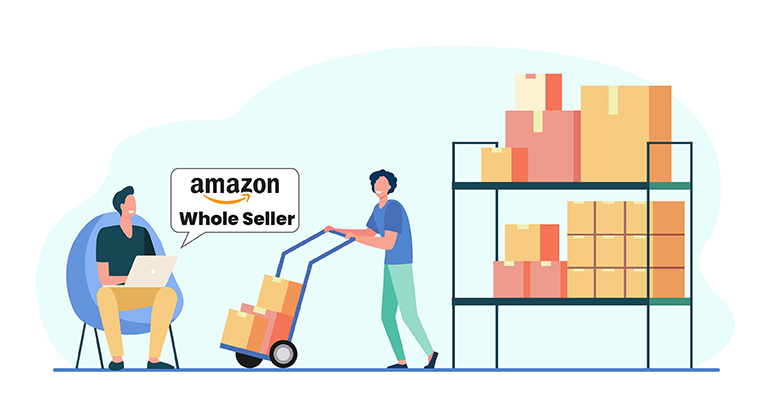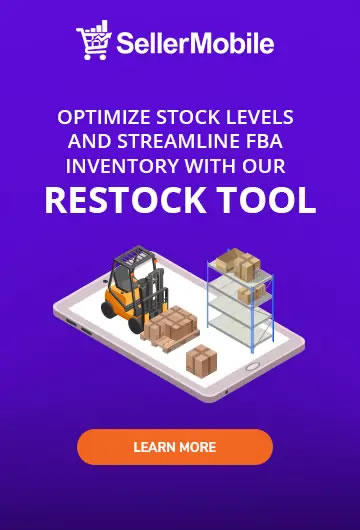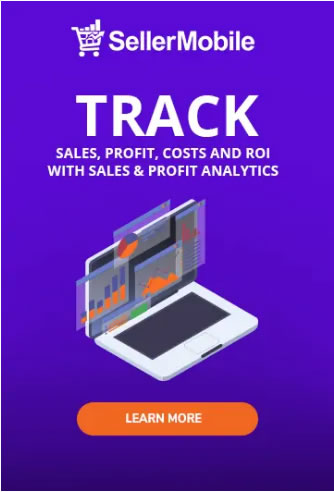Want to buy in bulk wholesale, then resell on Amazon? We’ll show you how to find the best wholesale suppliers, so you can try this age-old retail tactic.
There are many different ways to run a successful Amazon business, including dropshipping, retail arbitrage and private retail. One of the oldest strategies in commerce generally is buying products in bulk wholesale, then reselling them. Amazon is no exception: the wholesale business model remains one of the easiest ways for new sellers to enter the ecommerce space.
The largest barrier to entry for the wholesale business model, however, is finding reputable and consistent suppliers. Here we’ll outline the benefits of buying products in bulk wholesale, as well as the best ways to find reputable and consistent suppliers.
Advantages of Reselling Wholesale Products
Over a quarter of all Amazon sellers adopt the wholesale business model, and a majority of brick-and-mortar stores do the same. A quick trip to Ralph’s shows how the store simply buys in bulk from other brands, then resells the products at a markup. The wholesale business model allows Amazon sellers who are just starting out to begin profiting without creating their own branded products.
You Can Deal With Reputable Suppliers
A big reason to consider buying products in bulk wholesale is because reputable suppliers aren’t too difficult to find. Though many Amazon sellers considering this strategy worry about where to source their products, even big-name brands like Nike usually have straightforward processes for receiving approval to resell.
You Can Keep Shipping Costs Down
Unlike with other Amazon strategies, buying wholesale often doesn’t involve having to order from overseas and risk lengthy shipping times, hefty shipping fees and general uncertainty over delays. There are countless distributors in the US alone who will ship bulk orders directly to a location of your choice.
You Can Stay Stocked Consistently
One of the biggest obstacles to profitability on Amazon is staying stocked and maintaining your product visibility. Sellers who buy wholesale have a much easier time with inventory management, since suppliers are used to carrying large amounts and can easily replenish your inventory levels whenever necessary.
You Don’t Have to Worry About Product Launches
One of the reasons the wholesale business model is so useful for newcomers is because when reselling other brands’ products, there’s no need for costly product launches. Sellers who buy wholesale can save on both new product development and marketing campaigns.
Where to Find Wholesale Suppliers
Contact the Brands Themselves
The most straightforward way to find reliable wholesale suppliers is to go to brands directly. In most cases, it’s best to do this with smaller or modest-sized brands rather than big names like Adidas or Nike. Purchasing directly from the brands themselves cuts out the middleman, guaranteeing you get the lowest price.
When contacting brands directly, look for brands with a strong sales volume on Amazon. Smaller brands with a solid track record are ideal. Contact the brands you like using the email address provided on their website.
Use Wholesale Directories
Websites like Wholesale Central and others will list companies that offer bulk deals and organize them by category of product. Searching through these sorts of directories can help focus your search for a supplier.
Many companies in directories like this will sell products straight to Amazon as well, further lowering the barrier to entry for new ecommerce sellers.
Visit Trade Shows
Despite the rise of the digital age, in-person interactions remain the lifeblood of business. Networking at trade shows is a great way to establish long-term relationships with wholesale suppliers. Suppliers are also much more likely to begin working with a seller if they can put a face to the name, and have met the seller personally.
Search for Industry-Specific Distributors
A number of brands offer wholesale deals through third-party distributors only. Most third-party distributors sell multiple brands’ products, all related to a specific industry. A quick Google search of “toy/shoe/candle distributor” will go a long way toward locking in that perfect long-term supplier for your business.
Finding the Best Wholesale Suppliers
Knowing where to look for suppliers is only half the battle, however. You’ll still need to discern which wholesale suppliers will be easiest to work with and can get the job done consistently.
Focus on Communication
Even if a supplier stays consistently stocked, an absence of effective communication inevitably leads to a breakdown of good business. When reaching out to multiple suppliers, note which ones respond to inquiries quickly and straightforwardly.
Evaluate Their Reputation
Track down as many reviews, outside testimonials and current customers as possible to establish the supplier’s reputation. If you can determine how many long-term customers the supplier has, all the better.
Monitor Inventory Levels
Search through suppliers’ product catalogs and jot down how many out-of-stock items you see. If a certain supplier has multiple stockouts, look for greener pastures elsewhere.
Comb Through Terms and Conditions
As you begin to close in on your preferred suppliers, you’ll want to start looking through the specifics of how each one does business. Is the minimum order quantity large or small? What are their average lead times? What fees do they charge? The devil is in the details, and you don’t want to get saddled with a supplier that’s more trouble than they’re worth.
Weigh the Costs
Naturally, the most important aspect of finding a strong wholesale supplier is cost. Luckily, Amazon provides a free revenue calculator that sellers can use to measure profit margins according to different suppliers’ prices.
Summary
Buying and reselling wholesale products is a great way to get started in the ecommerce space. The barrier for entry is low, and the potential for profit high. That said, finding reliable long-term wholesale suppliers takes initiative. The easiest ways to find suppliers are by contacting the brands directly, using wholesale directories, visiting tradeshows and searching for industry-specific distributors. When evaluating different suppliers, emphasize communication, reputation, inventory levels, terms and overall cost.
As the wholesale business model grows in popularity, many sellers opt for automated seller software that helps streamline the supply side of their businesses. SellerMobile, for instance, automatically predicts demand, provides restock plans, tracks FBA metrics and generates purchase orders. Users can even print shipping labels from the dashboard.
Start a free 14-day trial of SellerMobile here, or click here to get a free business consultation from our team of Amazon experts.





